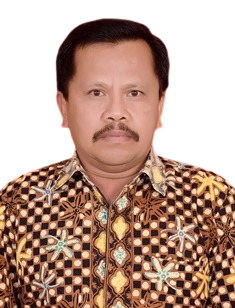Information search trends about sharia: a comparation study between business-industry genre with book-literature genre
Downloads
Indonesia has a large sharia market potential. This is because Indonesia has the largest Muslim population in the world. The market potential is supported by the openness of information via the internet. This study aims to observe trends in information search on the internet about sharia with comparative studies on the genre of "business-industry" with the genre of "book-literature". The approach in this research is descriptive qualitative with the method of a literature study to collect data. The primary data of this study are the trends in sharia information sought by internet users throughout 2019. The results of the study indicate that the trend of information about sharia with the "business-industry" genre is more than the "book-literature" genre. The trend of seeking information about halal is the most trend in both genres, while the trend of finding the least information is information about sharia research.
Abduh M, Azmi Omar M. 2012. Islamic banking and economic growth: the Indonesian experience. Int. J. Islam. Middle East. Financ. Manag. 5, 35–47.
Andriansyah Y. 2009. Kinerja keuangan perbankan syariah di Indonesia dan kontribusinya bagi pembangunan nasional.
Anggara FSA. 2017. Development of Indonesia Halal Agroindustry Global Market in ASEAN: Strategic Assesment. Al Tijarah 3, 65–78.
Ansharullah A, Natasha H, Indra AM., 2018. Pemberdayaan Pelaku Ekonomi Sektor Melalui Peningkatan Pemahaman Konsep Wisata Syariah. J. Pemberdaya. Masy. Madani 2, 224–236.
Barata A. 2019. Strengthening national economic growth and equitable income through sharia digital economy in Indonesia. J. Islam. Monet. Econ. Financ. 5, 145–168.
Bauer AT, Ahooei EM. 2018. Rearticulating Internet Literacy. J. Cybersp. Stud. 2, 29–53.
Carter-Harris L, Ellis RB, Warrick A, Rawl S. 2016. Beyond traditional newspaper advertisement: leveraging Facebook-targeted advertisement to recruit long-term smokers for research. J. Med. Internet Res. 18, e117.
Choudhury MA, Malik UA. 2016. The foundations of Islamic political economy. Springer.
Dali N, Ahmad S. 2005. A review of forward, futures, and options from the shariah perspective."from complexity to simplicity”., in: Conference on Seminar Ekonomi & Kewangan Islam. pp. 29–30.
Desker B. 2019. Another Term for Jokowi: Some Significant Developments.
Firmansyah H, Husen Sobana HD. 2014. Bank dan Industri Keuangan non Bank (IKNB) Syariáh.
[Harian Pikiran Rakyat]. 2019. Dana Habis Ratusan Miliar, Buta Aksara Tetap Banyak. Berita pendidikan tanggal 3 September 2019. [internet] Tersedia pada https://www.pikiran-rakyat.com/pendidikan/pr-01318555/dana-habis-ratusan-miliar-buta-aksara-tetap-banyak
Huda N. 2018. Simmiliarity waqf an instrument of community empowerment in Islamic boarding school Daarut Tauhid in Indonesia. Repos. Yars.
[Kemendikbud] Kementerian Pendidikan dan Kebudayaan. Indeks Aktivitas Literasi Membaca (Indeks Alibaca). Repositori Kemendikbud diakses pada 30 Mei 2020. [internet] Tersedia pada http://repositori.kemdikbud.go.id/13033/1/Puslitjakdikbud_Indeks%20Aktivitas%20Literasi%20Membaca%2034%20Provinsi
Kadarisman H, Kholil K, Ariyani N. 2018. Digital era marketing strategy analysis of syariah banking in Indonesia, study on e-word-of-mouth relation to purchase intention through brand image to increase syariah banking market share in Indonesia. J. Sains Terap. Pariwisata 3, 199–217.
Laksono K, Retnaningdyah P. 2018. Literacy infrastructure, access to books, and the implementation of the school literacy movement in primary schools in Indonesia, in: IOP Conference Series: Materials Science and Engineering. IOP Publishing, p. 12045.
Mahyudi M. 2015. Reviving the Islamic economic system through shariah-based public policy. Humanomics 31, 415–429.
Maison D, Marchlewska M, Zein RA, Syarifah D, Purba H. 2019. Religiously permissible consumption: The influence of the halal label on product perceptions depending on the centrality of religiosity. J. Islam. Mark.
Rizka R. 2016. Persepsi Konsumen Tentang Wisata Syariah dan Pengaruhnya Terhadap Minat Berkunjung. Univ. Lampung.
Sahlan MK, Abu-Hussin MF, Hehsan A. 2019. Market coopetition: Implications of religious identity in creating value added partnership within halal mart retailers. J. Islam. Mark. 10, 465–475.
Sakinah I. 2018. Pengaruh inflasi, jakarta islamic index (jii), dan sertifikat bank Indonesia syariah (SBIS) terhadap surat berharga syariah negara (SBSN) periode januari 2012–oktober 2017.
Sholikhin MY, Amijaya RNF. 2019. E-commerce based on the law of buying and selling in Islam. KnE Soc. Sci. 1360–1370.
Sukardani PS, Setianingrum VM, Wibisono AB. 2018. Halal lifestyle: current trends in Indonesian Market, in: 1st International Conference on Social Sciences (ICSS 2018). Atlantis Press.
Suwono H. 2017. School literary movement in Indonesia: Challenges for scientific literacy, in: International Conference on Education (ICE2) 2018: Education and Innovation in Science in the Digital Era. pp. 309–317.
Utami P. 2019. Optimization of utilization of E-commerce on halal products in Indonesia. East. J. Econ. Financ. 4, 14–23.
Veer DK, Khiste GP, Deshmukh RK. 2018. Publication Productivity of ‘Information Literacy'in Scopus during 2007 to 2016. Asian J. Res. Soc. Sci. Humanit. 8, 171–183.
Wulandari TD. 2013. The needs of Internet literacy in an ongoing process of economic stability.
Authors who publish with Journal of halal product and research (JPHR) agree to the following terms:
- The journal allows the author(s) to hold the copyright of the article without restrictions.
- The journal allows the author(s) to retain publishing rights without restrictions.
- The legal formal aspect of journal publication accessibility refers to Creative Commons Attribution (CC BY) 4.0 International License










